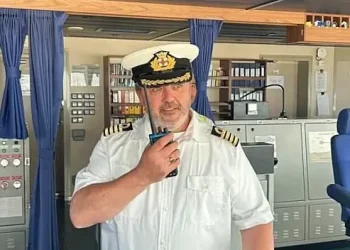SAF Mandate Implementation
The SAF Mandate, a key policy to decarbonise aviation fuel, has been approved by the UK parliament and will come into effect on 1 January 2025.
This mandate requires obligated suppliers to deliver a increasing percentage of SAF in the overall UK aviation fuel mix.
Starting at 2% of total UK jet fuel demand in 2025, the target will increase linearly to 10% by 2030 and then to 22% by 2040.
Implementation Details
The mandate stipulates that from 2025, SAF must constitute 2% of the total jet fuel supplied in the UK, rising to 10% by 2030 and 22% by 2040. This obligation will remain at 22% from 2040 until there is greater certainty regarding SAF supply.
Economic and Societal Impact
The SAF Mandate is expected to support thousands of skilled jobs and contribute to economic growth, helping to make the UK a clean energy superpower.
This initiative aligns with the UK’s broader strategy to decarbonise aviation, aiming for net zero emissions by 2050.
Central Impact
- Up to 6.3 megatonnes of carbon savings per year by 2040.
- Linear increase in SAF percentage from 2% in 2025 to 22% in 2040.
- Potential delivery of up to 25 million tonnes of SAF between 2025 and 2040, securing a saving of up to 54 million tonnes of carbon dioxide.
Official Response
The SAF mandate will give the investment community confidence to invest in these novel and innovative technologies.
John Hendy, Transport Minister at UK Government
This statement underscores the government’s commitment to creating a supportive environment for the development and deployment of SAF technologies.
Current Status
- The UK parliament has approved the SAF mandate, ensuring its implementation from 1 January 2025.
- The mandate is part of the UK’s Jet Zero Strategy, which aims for net zero aviation emissions by 2050.
- A Sustainable Aviation Fuel (Revenue Support Mechanism) Bill will be introduced to support SAF production, expected to be industry-funded by the end of 2026.
Regional Effects
Implementing the SAF Mandate will have a major impact on regions hosting key aviation hubs. For instance, airports and surrounding communities can anticipate increased economic activity and job creation as the demand for SAF drives local investment and innovation.
The Takeaway
The introduction of the SAF Mandate marks a significant step towards a more sustainable aviation sector in the UK. This policy not only sets a clear trajectory for reducing carbon emissions but also fosters an environment conducive to technological innovation and economic growth.
As the UK moves forward with this mandate, it sets a precedent for other countries to follow in their own decarbonisation efforts, highlighting the importance of coordinated global action to address climate change.









